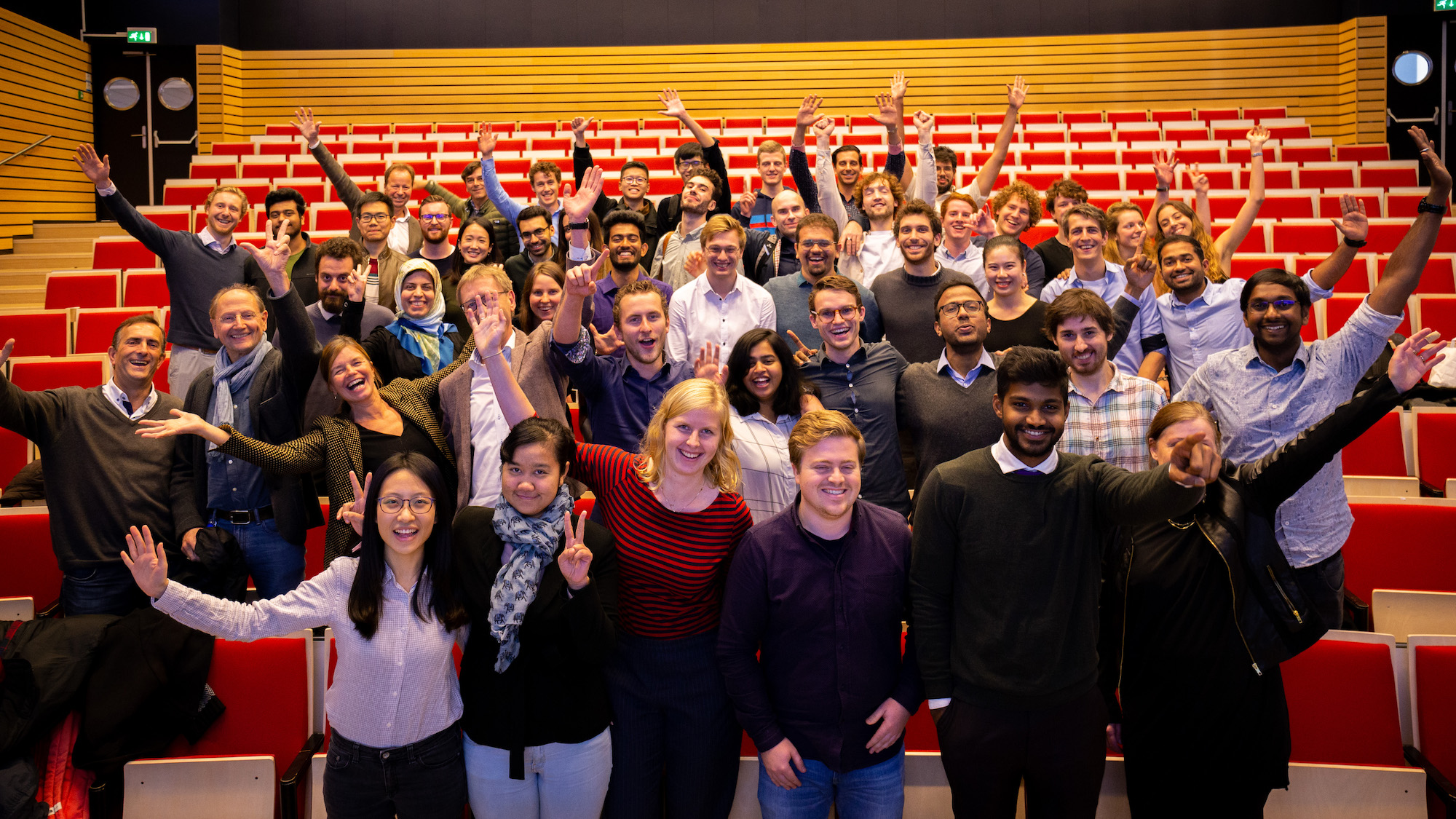Engineers are now more likely to work in small teams than with multinationals. The Joint Interdisciplinary Project prepares master’s students for this new environment.
The 2019 JIP team. (Photo: Bart Janse)
It’s a form of education that, according to Vice-President of Education Rob Mudde, should ideally be part of every engineer’s education. A JIP (Joint Interdisciplinary Project) brings together students with different backgrounds to work on a common project. This 10 week process is not always easy, but the experience is unforgettable and students emerge from it as members of a team.
As yet, not every student joins the JIP. But the number of participants is climbing steeply. Twenty students in 2018, 50 in 2019, and 200 in 2020.
“The world has changed,” observes Hans Hellendoorn, President of Education at the 3mE Faculty. “Our graduates used to seek employment in large multinationals. But nowadays, most of them work in small multidisciplinary teams and start-ups.” During a JIP, students experience what it’s like to work with people from different scientific and cultural backgrounds. “TU Delft is finally responding to changes in the employment market,” says Hellendoorn.
The JIP is an initiative by Aldert Kamp, President of Education at the Faculty of Aerospace Engineering. At the JIP presentation on 8 November 2019, he said: “It’s an idea for which the time has come. TU Delft educates agile and innovative engineers that can work in rapidly changing environments. Multidisciplinary work is the new standard. A solid problem analysis needs multiple backgrounds. Solving real-world problems requires solid technology, but also a feasibility study and ethical considerations.”
Examples
Starting in September, teams of five students of various backgrounds tackled projects that were presented by companies. The projects should be impactful, innovative, and have an actionable outcome. This year’s projects fell into three categories: aeronautics and space, energy transition, and built environment & agriculture. Let me give you some examples.
The team Green Air Transport worked with Airbus to explore the future of emission-free aviation. The vehicle is a rather bulky airplane powered by hydrogen which has 100 seats and a maximal range of about 1,500 kilometres. The whole project is CO2 free because it includes hydrogen production from solar or wind energy. Thus, said the team, we keep flying available for people in 2050. Today, aviation’s contribution to the global greenhouse gas emissions is only 2.5%, but in 2050 that will be 25% if current trends continue.
Another future exploration came from FreshTeq, an alliance from greenhouse manufacturers. Freshteq commissioned a study into the best ways to increase vegetable production in China. Greenhouses enable all-year production, as do plant factories where plants are grown in stacks and under artificial light. Comparing the two options in investment, energy use and production, the team concluded that greenhouses with geothermal heating would be the best way to increase food production. Not only in China, but in subtropical climates in general.
Team building
At the presentation, students stepped onto the podium as a team – often similarly dressed. But the team building wasn’t always easy. Growing pains are part of the process.
Students at the presentation say that the first week is mostly fun, games and getting to know each other. But a couple of weeks into the process, the pressure starts building up. People get irritated when they’re not understood. “I then learned to take a step back and started listening,” one of the students said. The same pressure helps to forge different individuals into a common team.
JIP’s staff underlined that all teams are supported by coaches to help them handle the problems that they may encounter.
Join the JIP?
The JIP takes place in the first quarter of the second year in the master programme and counts as 15 ECTS. During the JIP, students work both on the campus and in the commissioning company. More information and how to apply are on the JIP website.
For a short explanation, watch the video.
-
JIP is an 4TU Centre of Engineering Education activity.
Do you have a question or comment about this article?
j.w.wassink@tudelft.nl


Comments are closed.